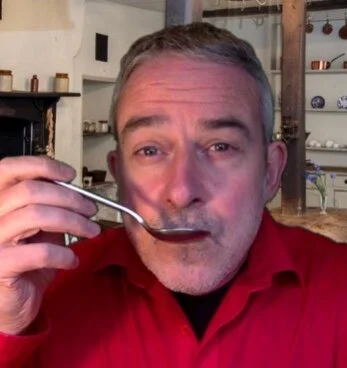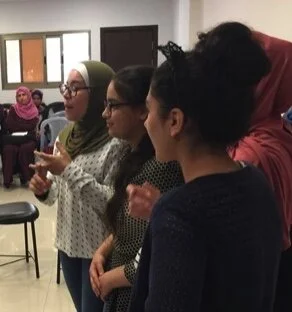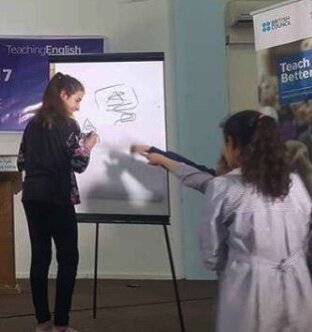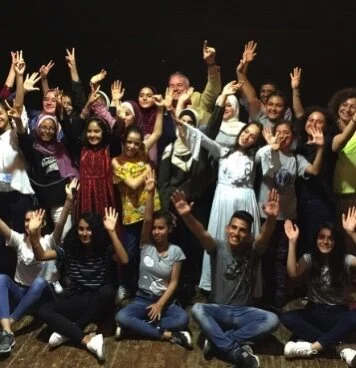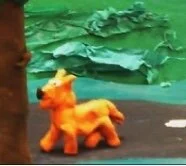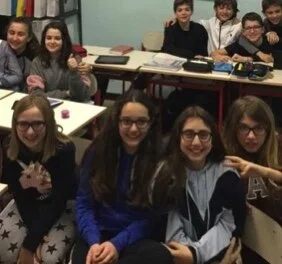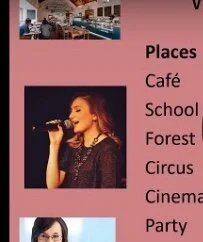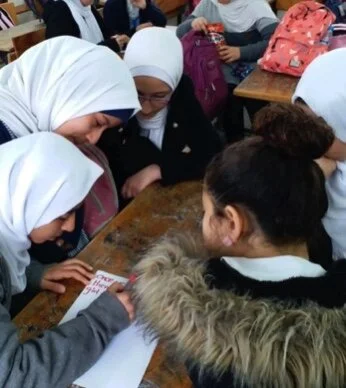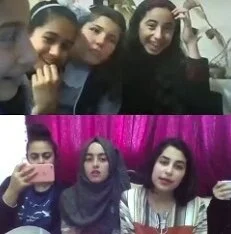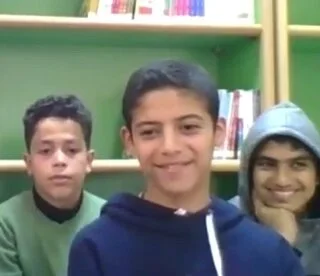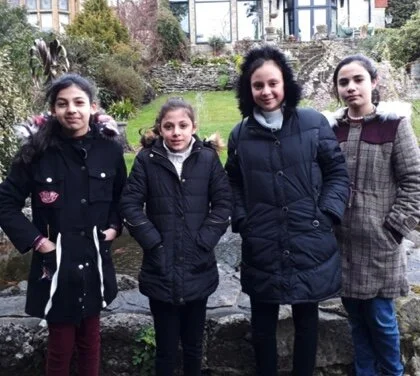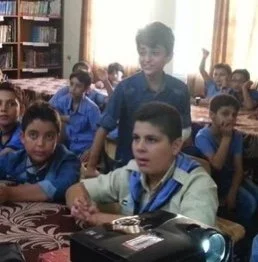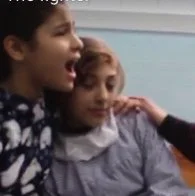I'm looking forward to our online sessions with young people in Palestine which will start again soon, and this year I'm particularly excited about experimenting with online storytelling using another of Zoom's free tools - the virtual background.
Read MoreIt's often true in classes in Palestine (maybe in classes all of the world) that learners know lots of words in English but they are not always so good at using these words in their own utterances. So perhaps one of our jobs as teachers is to design activities which challenge learners to speakify language.
Read MoreSo, as promised last week, here's a post talking about how we organised the teacher development courses in Gaza on remote theatre, and how we incorporated learners of English into the workshops. The two day course was delivered twice - once in Gaza city for teachers from the Northern areas, and once in Khan Younis for teachers form the Southern areas.
Read MoreI've learnt lots of things about education from working with teachers and students in Gaza. Like other areas of the world which are discriminated against, oppressed, and neglected, people in Gaza generally value education very highly.
Read MoreIt was wonderful to witness the enthusiasm and sheer joy that 15 girls from Gaza felt when they visited Jerusalem, took part in a drama workshop with young Palestinians of their age from Jerusalem, and performed their plays at the Palestinian National Theatre.
Read MoreThis week we have a post by Luzan Mattar, a teacher at Beach Elementary Co-ed (C) UNRWA school, Beach Camp, Gaza who has been coordinating HUP sessions in her school for a long time now. Luzan is very interested in using drama activities and her students performed one of my favourite plays in last years's competition - 'I will wait till they open the gate' .
Read MoreAs two English teachers , we like the idea of connecting our students together to help them improve their English language and make new friends at the same time. We believe that using zoom sessions on the internet can be the best way to do that. Our students can hear, see and interact with each other easily and effectively. Therefore, we decided to write our reflections of this wonderful experience from our different points of view. By Erica Napoli (in Milan) ....
Read MoreFor about a year now Manal and Rinan, two English teachers at Beit Hanoun Prep School have been doing weekly online sessions with Julietta Schoenmann, a HUP volunteer based in the UK. Here's their account of a session they conducted which involved parents and children working together.
Read MoreLast year, thanks to generous support from the Eddie Byers fund, Greenall Florent Books, Wendy Arnold and Walter King, I was able to go to Palestine on several occasions and run some short courses for UNRWA and Ministry of Education teachers on establishing and running English drama clubs in Palestinian schools.
Read MoreMy talks in 2017 and 2108 at the annual IATEFL conference in the UK included live remote plays performed through Zoom by children in Palestine. This year we did something different.
Read MoreThis week a post, and a great idea for helping young people write poetry, from one of our long term Hands Up Project volunteers based in Spain, Sara Wood.
Read MoreIn English classes in Gaza people sometimes ask " If you were in Britain, what would you do?" They do this as a way to practise the second conditional which as you know is used for talking about unreal, hypothetical situations. One day in January this year I suddenly realised that for us this situation wasn't hypothetical any more. I was chasing something possible; the long – awaited dream was going to come true. The unforgettable journey started when the HUP announced the winner of the Remote Theatre Competitions 2019.
Read MoreAs a writer of English language teaching materials, I like it when a teacher comes up to me at a conference and tells me that they've tried out an activity in one of my books and that it worked really well. It's particularly fulfilling when I discover that actually they've adapted the activity quite a bit to suit their own teaching context, as this means that they haven't just blindly followed the instructions but have really taken it to heart.
Read MoreAs a writer of English language teaching materials, I like it when a teacher comes up to me at a conference and tells me that they've tried out an activity in one of my books and that it worked really well. It's particularly fulfilling when I discover that actually they've adapted the activity quite a bit to suit their own teaching context, as this means that they haven't just blindly followed the instructions but have really taken it to heart.
Read MoreAt the IATEFL conference in Brighton last week, and again at the Hands Up Project conference at Westminster University which immediately followed it, Rida Thabet and I gave a talk about the special type of drama that The Hands Up Project is enabling Palestinian and Syrian children to perform through Zoom to audiences around the world. We have termed this form of drama Remote Theatre.
Read MoreOne of the things that I find most moving about the work of the Hands Up Project is the relationship that develops between the remote teacher and the classroom teacher. Alex Guzik in Russia and Sahar Salha in Gaza have been working together for well over two years now, planning online sessions together, feeding back to each other after the online session has taken place - even negotiating together what will happen next while the session is going on.
Read MoreIn many language classrooms around the world teachers generally ask a lot of questions to students. They do this as a way to generate chat and discussion, as in 'Did you have a nice trip?' or 'What do you think Jbene should do now?', but they also do it to test the knowledge of the students, as in "What's the past of go? ' and 'How do we say سمك in English?'Recently, in my online sessions with groups of kids in Palestine, I've been experimenting with a technique that encourages the learners to ask the questions.
Read MoreWe are excited to inform you that Saturday the 14th April will be the Hands Up Project conference at Westminster University in Central London. As you'll see below there is a fantastic line up of speakers and the climax will be a live performance by the winners of our playmaking competition - 'Inner Thoughts' from Khan Younis, Gaza.
Read MoreThe Hands Up Project isn't really very good at 'teaching' language. After three years of running this project, I've come to the conclusion that with all the power cuts, the often weak internet connection and the lack of physical presence, working online like this is actually quite an ineffective way of teaching anybody anything at all.
Read MoreOrganising a play writing competition is a good way to motivate learners of English, but drama as a tool for learning has more depth, is more holistic, and is much more wide-reaching than an approach which only emphasises the achievements of the few groups that win.In this post I want to focus on the process based drama work of two Gazan UNRWA English teachers, Sahar Salha and Saida Almadhoon who, each in their own way, have incorporated drama into their English curriculums by turning the playmaking competition into a drama project.
Read More
